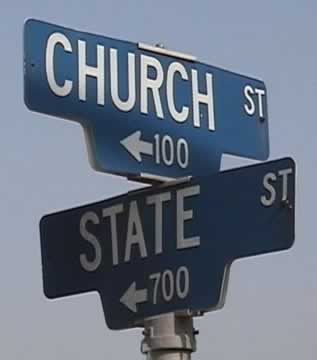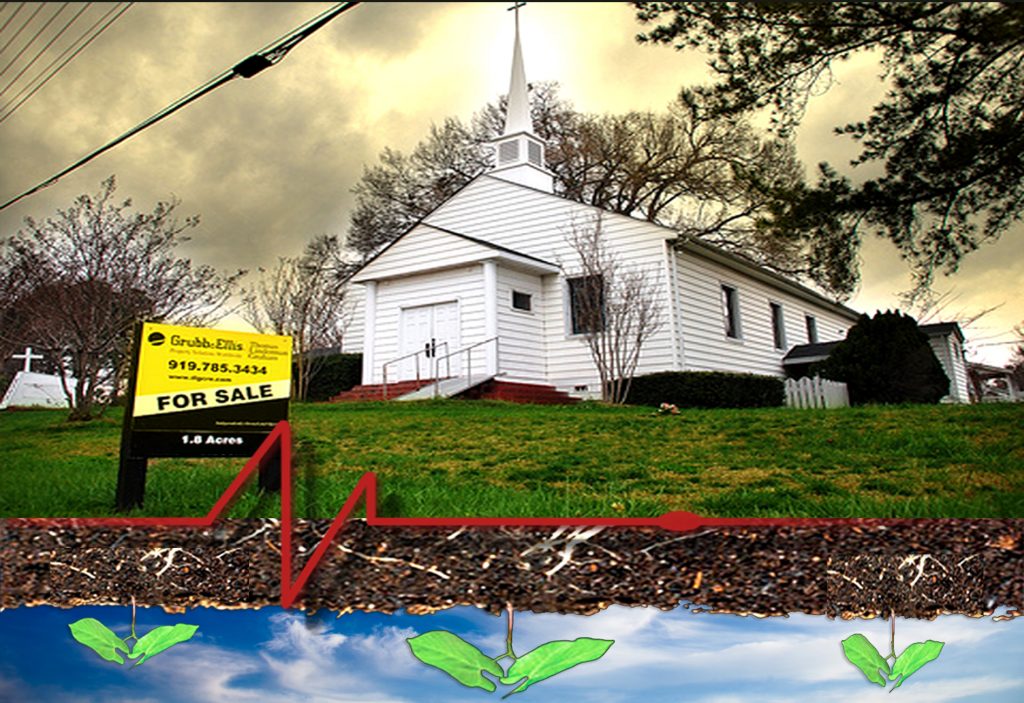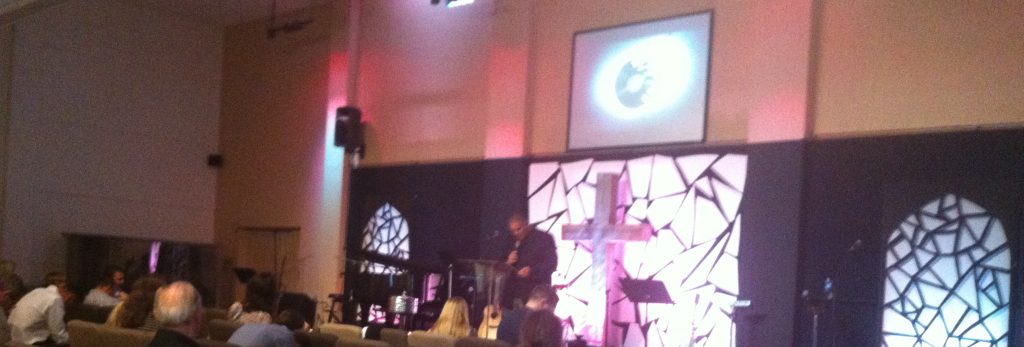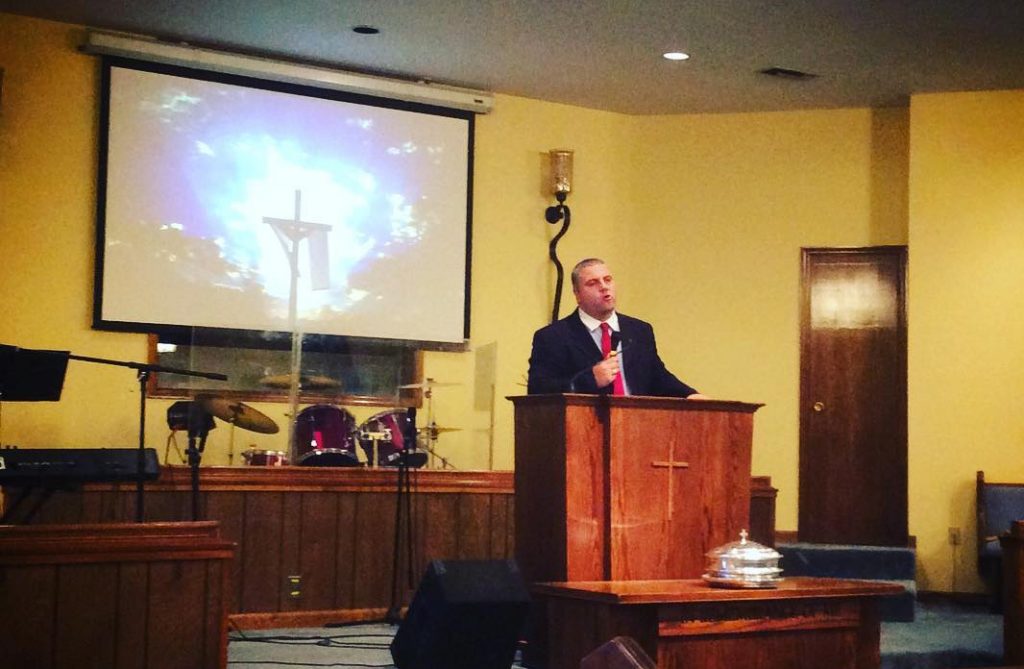September 15: First Day of School in Bulgaria
- OLYMPUS DIGITAL CAMERA
We Shall Never Forget
The Death of Dying Churches in the Context of Church Planting: 6 Reasons That Motivate us To Seek Church Planting Versus Church Rehabilitation
6 Reasons That Motivate us To Seek Church Planting Versus Church Rehabilitation
With the ever growing trend of Church planting, we have lost sight of the reality that too many churches are dying. We try to pretend that churches are not closing down everyday by creating hype with campaigns to rally around the numbers of new churches being started.
But if one church opens while another closes, what’s the benefit towards the Kingdom? The math simply does not add up. If a church is opened and has five people saved in the first service and 11 baptized the following week, but we close the doors of two other churches that same month, and this translates in an entire frustrated generation of youth exiting the church into a secular world of drugs and alcohol, then the Kingdom economics is lacking.
When there is a birth, we rejoice. When there is a death we cry. Death is damaging, painful and entangles us in a multifaceted web of emotions and responses. Sadly Christian churches today are dying for six major reasons:
- The Bible has been abandoned: “Feel-good” preaching replaces fundamental Biblical principals, morals and truths.
- We listen to too a multitude of church experts instead of hearing from one Divine voice.
- We treat the Church as a social club paying our 10% membership dues.
- There is more emphasis on evangelizing social media than the evangelizing the lost.
- We like the church box and the comfort of the walls and forget about the hurt and dying world beyond.
- It’s at times easier to close a church down to avoid dealing with the real problems.
Death is so damaging to the entire body of believers. Should we not focus on church care rather than closing, and reevaluate the effectiveness of putting more money into opening new churches? What is it that motivates us to seek after church planting versus church rehabilitation?
- Money is in church planting vs. debt is in church maintenance.
- The honeymoon period of a new church is much more glamorous vs. the trials of a struggling church.
- The problems of church planting are limited compared to the problems of dying church.
- We all want to rejoice in a birth instead of caring for the sick or morning the dead.
- A grand opening celebration is more appealing than a long and strenuous rehab process.
- Positive reinforcement and recognition comes with church planting. Negative reinforcement, and at times rejection, is associated with church care and problem solving.
If you work with people you will have problems and the more people you have the more problems you will have. And the more time you have these people, the more likely you are to have bigger challenges to overcome. But this is no reason to give up and avoid the hard times. Let us not let our existing churches dye while we have our eyes on starting new ones. It is when we embrace unification and restoration that bones come together, flesh develops out of past nothingness, skin covers the flesh out of former defeats, breath enters the bodies to all replace past failures and unforgiveness, and a vast army stands up stronger than ever. What some see as a dying church, Christ sees as His resurrected and indestructible army!
30 Days of Prayer in September
In church today, we talk, read and learn a lot about prayer. Yet, the truth is that in today we do not pray as before. The church of the 21t century is not a praying church. Therefore, on its’ 10-year anniversary and as a part of the National Bible Tour 2016, during the month of September www.bibliata.com calls for 30 Days of Prayer – a national prayer strategy including current, urgent needs of the Bulgarian Evangelical Movement.
Week 1
September 1, 2016 – Restoration of the Backslidden
September 2, 2016 – Church Leadership: Bulgarian Pastors and Ministers
Week 2
September 3, 2016 – National Revival in Bulgaria
September 4, 2016 – Spiritual and Physical Harvests
September 5, 2016 – Restoration of Protestant Evangelical Heritage
September 6, 2016 – Unification of the Bulgarian Nation and the Bulgarian Church (In observance of Unification Day in Bulgaria)
September 7, 2016 – Renewal of Family Ties
September 8, 2016 – Child Protection
September 9, 2016 – Mission Work
Week 3
September 10, 2016 – The Hopeless (In observance of World Suicide Prevention Day)
September 11, 2016 – Against Fear (In observance of Patriot Day in the United States)
September 12, 2016 – Sexual Purity and Biblical Moral Principles in the Bulgarian Society
September 13, 2016 – Sanctification and Prayer for Restoration of Holiness in the Bulgarian Church
September 14, 2016 – Return Toward Evangelical Roots
September 15, 2016 – Students of Bulgaria (In observance of the first day of school in Bulgaria)
September 16, 2016 – National Day of Fasting for the Bulgarian Evangelical Movement
Week 4
September 17, 2016 – The Country of Bulgaria
September 18, 2016 – National Prosperity
September 19, 2016 – Abortion Prevention and Prayer for Mothers Who Have Had an Abortion (In observance of Abortion Prevention Day in Bulgaria)
September 20, 2016 – Deliverance from Addictions (In observance of the National Addiction Counselors’ Day)
September 21, 2016 – World Peace (In observance of the International Day of Peace)
September 22, 2016 – Spiritual Freedom (In observance of Independence Day in Bulgaria)
September 23, 2016 – Spirit of Forgiveness
Week 5
September 24, 2016 – Restoring of Friendships and Relationships (In observance of National Good Neighbor Day)
September 25, 2016 – Against Stress and Results of Stress
September 26, 2016 – Physical Healing and Deliverance
September 27, 2016 – Peace for Israel
September 28, 2016 – A Fresh Anointing
September 29, 2016 – The Persecuted Believers
September 30, 2016 – Strength and Endurance
USCIRF Condemns Enactment of Anti-Terrorism Laws in RUSSIA
 WASHINGTON, D.C. – Russian President Vladimir Putin on July 7 signed into law a package of anti-terrorism measures the Russian State Duma passed in late June.
WASHINGTON, D.C. – Russian President Vladimir Putin on July 7 signed into law a package of anti-terrorism measures the Russian State Duma passed in late June.
The U.S. Commission on International Religious Freedom (USCIRF) strongly condemns these measures. Under the guise of confronting terrorism, they would grant authorities sweeping powers to curtail civil liberties, including setting broad restrictions on religious practices that would make it very difficult for religious groups to operate. On June 23, President Putin signed into law yet another problematic measure: It authorizes the police to arrest people suspected of violating “generally accepted norms of social behavior,” thereby giving authorities another weapon to use against disfavored groups, including religious organizations.
“These deeply flawed anti-terrorism measures will buttress the Russian government’s war against human rights and religious freedom,” said USCIRF Chair Thomas J. Reese, S.J. “They will make it easier for Russian authorities to repress religious communities, stifle peaceful dissent, and detain and imprison people. Neither these measures nor the currently existing anti-extremism law meet international human rights and religious freedom standards.”
The anti-terrorism measures would, among other provisions, amend the 1997 Russian religion law by redefining “missionary activities” as religious practices that take place outside of state-sanctioned sites. The new law thus would ban preaching, praying, proselytizing, and disseminating religious materials outside of these officially-designated sites, and authorize fines of up to $15,000 for these activities conducted in private residences or distributed through mass print, broadcast or online media. Foreign missionaries also must prove they were invited by state-registered religious groups and must operate only in regions where their sponsoring organizations are registered; those found in violation face deportation and major fines.
The Russian government uses its current anti-extremism law to target religious communities because the legal definition of extremism does not require the threat or use of violence. “Extremism” charges can include the peaceful promotion of “the superiority of one’s own religion,” and have resulted in religious texts being banned and members of non-violent Muslims groups and Jehovah’s Witnesses imprisoned. The proposed anti-terrorism measures would increase prison terms under the current extremism law.
USCIRF placed Russia on its Tier 2 list in its 2016 Annual Report. In Tier 2 countries, the violations the government engages in or tolerates are serious and characterized by at least one of the elements of IRFA’s “systematic, ongoing, and egregious” standard. For more information, please refer to the Russia chapter in USCIRF’s 2016 Report (in English and in Russian).
Ministering to the Slavs
95 SLAVIC CHURCHES and 8 BIBLE SCHOOLS in the United States
- House of Bread Church (Sacramento, CA) https://www.facebook.com/hofbchurch
- Bethany Slavic Missionary Church (Sacramento, CA) https://www.facebook.com/bethany.slavicmissionarychurch
- Bethany Youth https://www.facebook.com/BethanYouth
- Missionary Gospel Church (Sacramento, CA) https://www.facebook.com/pages/Missionary-Gospel-Church/151514864873051
- House of Prayer, Rochester NY https://www.facebook.com/pages/House-of-Prayer-Rochester-NY/249103651804095
- Living Stream Church (Jacksonville, FL) https://www.facebook.com/livingstreamchurch
- Sulamita Slavic Evangelical Church (Portland, OR) https://www.facebook.com/sulamitachurch
- Life Christian Church https://www.facebook.com/pages/Life-Christian-Church/350358664991387
- SGC Youth (Federal Way, WA) https://www.facebook.com/sgcyouthpage
- Light To The World, Bellevue WA https://www.facebook.com/christianfaithchurch
- Awakening Church https://www.facebook.com/1awakening
- Light of the Gospel Missionary Church, Sacramento, CA https://www.facebook.com/logmc
- Bethany Church (Seattle WA) https://www.facebook.com/bethanychurch.seattle
- Paradise Youth https://www.facebook.com/ParadiseYouthWA
- Grace Slavic Church https://www.facebook.com/GraceSlavicChurch
- Slavic Christian Church of Salem https://www.facebook.com/pages/Slavic-Christian-Church-of-Salem/573544672704540
- Slavic Youth of Spartanburg https://www.facebook.com/Slavicyouth
- Voice of Hope Church (Portland OR) https://www.facebook.com/VOHCC
- City of Rain Church (Kent, Tacoma WA) https://www.facebook.com/pages/City-of-Rain-Church/109176399100701
- UFGPC Youth (Tacoma WA) https://www.facebook.com/pages/Ufgpc-Youth/160358890697017
- Slavic Full Gospel Church https://www.facebook.com/SFGoneway
- JC Healing House Youth https://www.facebook.com/pages/JC-Healing-House-Youth/395744683877949
- Living Stream Youth (Jacksonville, FL) https://www.facebook.com/LSYJAX
- House of Prayer (Utica, NY) https://www.facebook.com/houseofprayerutica
- New Life Church (Atlanta, GA) https://www.facebook.com/pages/New-Life-Church/181065961957787
- Choose Life Church https://www.facebook.com/ChurchChooseLife
- Upstream Youth Ministry https://www.facebook.com/upstreamyouth
- Revelation of Jesus Christ Church https://www.facebook.com/cerkov
First Slavic Pentecostal Church (Florida) https://www.facebook.com/fspcflorida - Voice of Hope Youth (Tukwila WA) https://www.facebook.com/pages/Voice-of-Hope-Youth/102800069772958
- Slavic Pentecostal Church (Ashville, NC) https://www.facebook.com/pages/Slavic-Pentecostal-Church-Asheville-NC/202376667836
- Messenger of Truth Slavic Pentecostal Church https://www.facebook.com/pages/Messenger-of-truth-Slavic-pentecostal-church-Весник-Истины/160101984021265
- First Slavic Evangelical Baptist Church https://www.facebook.com/fsebc.org
- Christian House of Worship (Chicago, IL) https://www.facebook.com/pages/Christian-House-Of-Worship/244999968853222
- Center of Life Youth (Spokane, WA) https://www.facebook.com/COLyouth
- River of Life (Dallas, TX) https://www.facebook.com/riveroflifeDFW
- Salvation Baptist Church (Edgewood, WA) https://www.facebook.com/salvationbaptistchurchWA
- Good News Church, Tacoma WA https://www.facebook.com/GNCtacoma
- City Youth (Sacramento, CA) https://www.facebook.com/CityYouthPage
- Russian Church of Texas https://www.facebook.com/pages/Russian-Church-Of-Texas/177474895634789
- Word of Grace Bible Church (Vancouver WA) https://www.facebook.com/islovo
- LTTW Youth https://www.facebook.com/pages/LTTWyouth/123040017759998
- Church of Truth (Vancouver WA) https://www.facebook.com/churchoftruth
- Generation 4 Truth Youth (Vancouver WA) https://www.facebook.com/Generation4Truth
- Reality Church https://www.facebook.com/pages/Reality-Church/150568224999961
- NW House of Prayer Youth https://www.facebook.com/NWHOP
- Slavic Gospel Church (Federal Way, WA) https://www.facebook.com/pages/Slavic-Gospel-Church-SGC/144695832250368
- Ecclesia Church https://www.facebook.com/pages/Ecclesia-Church/139221649433334
- LCC Youth (Federal Way WA) https://www.facebook.com/lccyouth
- Marysville Youth https://www.facebook.com/pages/Marysville-Youth/152581284812247
- The Slavic Church Orange County https://www.facebook.com/pages/The-Slavic-Church-Orange-County/204476786293337
- Bread of Life Christian Church (Springfield, MO) https://www.facebook.com/BreadOfLifeMO
- Crosslight Youth https://www.facebook.com/CrossLightYouth
- SGC Youth (Bellingham, WA) https://www.facebook.com/sgcyouth
- Image Church (Lynnwood WA) https://www.facebook.com/imagechurchwa
- New Testament Church (Seattle WA) https://www.facebook.com/NewTestamentChurchOfSeattle
- Seattle Sulamita Youth https://www.facebook.com/SeattleSulamitaYouth
- Bethel United (Everett WA) https://www.facebook.com/bethelunited
- Harvest Christian Center, Everett WA https://www.facebook.com/harvestcci
- The Reign Youth Ministry https://www.facebook.com/thereigntv
- Pilgrim Slavic Baptist Church https://www.facebook.com/pages/Pilgrim-Slavic-Baptist-Church/191063207603466
- Revival Christian Center https://www.facebook.com/RevivalChristianCenter
- Church of the Living God https://www.facebook.com/churchofthelivinggod
- Christian Faith Church https://www.facebook.com/christianfaithchurch
- New Life Church, Sioux Falls https://www.facebook.com/NewLifeSF
- Stream of Life Slavic Church, Salem OR https://www.facebook.com/pages/Stream-of-Life-Slavic-Church-Beaverton-OR/1562572783958882
- Life of Victory Church (Renton, WA) https://www.facebook.com/lifeofvictory
- LOV Impact Youth Ministry https://www.facebook.com/lov.impactministry
- Russian Church of Atlanta https://www.facebook.com/pages/Russian-Church-of-Atlanta/118629801519020
- Voice of Hope Youth (Portland, ORG) https://www.facebook.com/vohyouth
- New Beginnings (Portland OR) https://www.facebook.com/ChurchNN
- Slavic Church Emmanuel IGNITE YOUTH https://www.facebook.com/IGNITEYOUTHMN
- Revival Youth https://www.facebook.com/pages/Revival-Youth/116468545048864
- Христианская Церковь https://www.facebook.com/ztchurch.pp.ua
- Sulamita Youth Boise, ID https://www.facebook.com/Sulamitayouth
- SFG Youth Minsitries, INC https://www.facebook.com/pages/SFG-Youth-Ministries-Inc/104986232913764
- Russian Church, NY https://www.facebook.com/RussianChurchNY
- Russian Speaking Church https://www.facebook.com/ChurchNT
- Russian Baptist Church of Auburn (WA) https://www.facebook.com/beinchurch
- FUBC Youth https://www.facebook.com/FUBChurch
- Spokane Slavic Baptist Church https://www.facebook.com/SpokaneSlavicBaptistChurch
- Harvest Church (Atlanta, GA) https://www.facebook.com/sccharvestchurch
- New Life Christian Center https://www.facebook.com/pages/New-Life-Christian-Center/421531024606715
- Youth of Grace Church MN https://www.facebook.com/gracechurchmn
- Light of the Gospel Youth https://www.facebook.com/logmcyouth
- New Life Christian Church (Mount Vernon, WA) https://www.facebook.com/pages/New-Life-Christian-Church/125171360847142
- Voice of Victory Christian Center https://www.facebook.com/VoiceofVictoryCC
- New Life Youth (Mount Vernon, WA) https://www.facebook.com/new.lifeyouth.5
- BYM Bethesda Youth Ministries https://www.facebook.com/pages/BYM-Bethesda-Youth-Ministries/146983352017824
- Hungry Generation https://www.facebook.com/hungrygen
- Spring of Life Youth (Mukilteo, WA) https://www.facebook.com/sol7pm
- Zachary Worship Center https://www.facebook.com/pages/Zachary-Worship-Center/213673752032634
- SBS Ministry https://www.facebook.com/pages/SBS-Ministry/107726752660587
- Bryte Youth https://www.facebook.com/bryteyouth
- Christian Cultures Center https://www.facebook.com/christiancultures
- First Slavic Pentecostal Church (North Port, FL) https://www.facebook.com/fspcflorida
BIBLE SCHOOLS:
- SMBS Jacksonville FL https://www.facebook.com/SMBSJax
- Центр Христианского Образования https://www.facebook.com/ChristianEduOnline
- Teens Bible School (Jacksonville, FL) https://www.facebook.com/tbsjax
- Bethany Bible School, Sacramento, CA https://www.facebook.com/BethanyBibleSchool
- Slavic Bible College, Tacoma WA https://www.facebook.com/pages/Slavic-Bible-College/232529120120565
- God Will Provide Missionary Bible School, Portland OR https://www.facebook.com/GodWillProvideMissionarySchool
- Slavic Theological Seminary https://www.facebook.com/SlavicSeminary
- Light To The World Missionary Bible School, Sedalia MO https://www.facebook.com/pages/Light-to-the-Word-Missionary-School/181729235191926
10 Years Bulgarian Chaplaincy Association
Comments Off on 10 Years Bulgarian Chaplaincy Association
 A decade ago we established the Bulgarian Chaplaincy Association with a vision for ministry in the Bulgarian army, Ministry of Internal Affairs, jail and prison systems, Bulgarian seaports and airports, and the healthcare system. Out of these five goals set before us in 2006 we have fulfilled them all:
A decade ago we established the Bulgarian Chaplaincy Association with a vision for ministry in the Bulgarian army, Ministry of Internal Affairs, jail and prison systems, Bulgarian seaports and airports, and the healthcare system. Out of these five goals set before us in 2006 we have fulfilled them all:
1. Tolerant and equal representations of all confessions in the chaplaincy ministry
2. The implementation of a contextualized chaplaincy model
3. The integration of chaplaincy education in all Bulgarian theological higher educational institutions
4. And the educational and consultant work on government and church levels
except:
5. The establishment of legal grounds for regular paid chaplaincy service in the Bulgarian army, Ministry of Internal Affairs, jail and prison systems, Bulgarian seaports and airports, and the healthcare system.
After designing and teaching the Masters of Chaplaincy Ministry program in two major evangelical universities in Bulgaria, we now have some of our trained chaplains working in jails, prisons, healthcare, civil emergency services and the corporate/political level. The legal system in Bulgaria, however, is yet to provide the proper measure for restoring chaplaincy in Bulgaria’s armed forces. To this final step fulfillment we pledge out support in 2016.
Bulgarian Chaplaincy Association: Vision and Resolution
Bulgarian Chaplaincy Association
Resolution No. 1
We,
The founding members of the Bulgarian Chaplaincy Association in its first national assembly today August 19, 2006 in hotel Diana Palace, Yambol
In regard of:
1. Bulgaria’s membership in NATO and its upcoming integration in the European Union
2. The transformations within the Bulgarian Army from mandatory toward standard paid service and the participation of Bulgarian contingent in NATO and UN missions
3. Contract agreement for NATO airbases on Bulgarian territory
4. The strategic renewal of chaplaincy ministry in the Bulgarian army
5. And the present need of chaplaincy ministry integrated in the Bulgarian army, Ministry of Internal Affairs, jail and prison systems, Bulgarian seaports and airports, and the healthcare system,
Declare our support toward:
1. The establishment of legal grounds for regular paid chaplaincy service in the Bulgarian army, Ministry of Internal Affairs, jail and prison systems, Bulgarian seaports and airports, and the healthcare system
2. Tolerant and equal representations of all confessions in the chaplaincy ministry
3. The implementation of a contextualized chaplaincy model
4. The integration of chaplaincy education in all Bulgarian theological higher educational institutions
5. And the educational and consultant work on government and church levels.
We, the founding members of the Bulgarian Chaplaincy Association will work toward the renewal, popularization and equal religious representation of chaplaincy ministry in all professional areas.
August 19, 2006
Diana Palace, Yambol
Also important [click to read]:
- U.S. Department of State recognizes our chaplaincy efforts in Bulgaria
- Bulgarian Chaplaincy Association: Integration Proposal with Local NATO Programs
- Chronology of our role and involvement in developing Church of God chaplaincy in Bulgaria since 2001
- Master’s of Chaplaincy Ministry Program in Bulgaria Reflections
- The Past Decade of Chaplaincy in Bulgaria (2006-2016)
- Related Publications and Presentations by Cup & Cross Ministries International
95 Years Ago Ivan Voronaev Finally Reached the City of Odessa
![51Sa1IcA8OL._SY344_PJlook-inside-v2,TopRight,1,0_SH20_BO1,204,203,200_[1]](https://cupandcross.com/wp-content/uploads/2014/03/51Sa1IcA8OL._SY344_PJlook-inside-v2TopRight10_SH20_BO1204203200_1.jpg) Not So “Little Odessa” (from the book The Life and Ministry of Rev. Ivan Voronev)
Not So “Little Odessa” (from the book The Life and Ministry of Rev. Ivan Voronev)
By the end of the summer of 1921, Voronaev and Koltovich received their permits to return to Russia and on August 12, 1921 landed in Odessa.[1] It had taken Voronaev over a decade of traveling around the globe to return to his motherland as a Pentecostal preacher and fulfill the divine calling: “Voronaev, Voronaev. Go to Russia!”
The results of his commitment and sacrifice increased quickly. For the first three months in Odessa, he labored among the evangelical churches, sharing his testimony and preaching the full gospel. Then, on November 21, 1921 he organized the Christian Evangelical Faith (Confession).[2] In two years time, the new community had over 370 members and the news of the new Pentecostal teaching spread rapidly across the U.S.S.R. In 1924, the Odessa community organized a regional assembly and at the second assembly in 1925, the Ukrainian Union of Evangelical Christian Faith (Confession) was established.
By 1927, more than 350 Pentecostal Assemblies with membership of 17,000 strong were part of the Union,[3] which continued to grow and by 1944 exceeded 20,000 in Ukraine and 80,000 strong in the whole U.S.S.R.[4] Voronaev’s church in Odessa alone was reported to have over 1,000 members.[5] Government persecution was inevitable. Numerous publications against Voronaev’s work were circulated not only through Communist propaganda, but by some Baptist periodicals, who characterized the Pentecostal ministry as sectarian at best.[6] The Regime could not afford the meetings of large groups of people who were not part of the Communist Party. The Voronaev family paid the ultimate price of their calling for organizing and growing the Pentecostal community in Communist Russia.
In the summer of 1930 the repressions against Russian Pentecostals began. On July 6 (almost exactly 10 years after he left America for his prophesied mission to Russia) Ivan E. Voronaev and B.R. Koltovich, along with some 800 Russian pastors,[7] were arrested for preaching the Gospel through the support of churches outside the U.S.S.R., both sufficient reasons to be convicted in espionage and imprisoned in Siberian work camps.[8] Voronaev’s wife was also sentenced to imprisonment in mid-Asia. Their children were left without provision and no one to take care of them…[9]
[1] Ibid.,8.
[2] Ibid.,9.
[3] Koltovich, “Minutes of the Jubilee Meeting”, 10 and Evangelist (Odessa: 1928, No. 1) Quoted in Durasoff, 73 and Smolchuck, 4.
[4] Zhidkov, “On the Roads …” (Bv, No. 3, 1957), 62. Around 1936 Donald Gee, who had an extensive ministry at the Assemblies of God training program for ministers at Gdanks (Danzig), Poland, claimed some 80,000 Pentecostals in Russia in Upon All Flesh (Springfield: The Gospel Publishing House, 1947), 31. Both quoted in Durasoff, The Russian Protestants. For a more detail discussion on the growth of Pentecostalism in the U.S.S.R see V.I. Franchuk, Prossila Rossia Dozhdia u Gospoda (n/a: Kiev, 2001).
[5] McLeod, Hugh. Christianity: World Christianities c. 1914-c. 2000 (Cambridge: Cambridge University Press, 2006), 97.
[6] Durasoff, 73.
[7] McLeod, 97.
[8] Burgess, Stanley M. and Eduard M. van der Maas, The New International Dictionary of Pentecostal and Charismatic Movements (Zondervan: Grand Rapids, 2002), 1179-80.
[9] For the situation in Russia and the story of the Voronaev children see Voronaeff, Paul. Christians under the Hammer and the Sickle (Wichita: Defender Publishers, 1935). Book was printed a total of 11 times in some three years time.
Ministering in Bellshire
Bulgaria to ban all foreign preachers
 The Patriotic Front, a newly established political formation in Bulgaria, filed changes to the 2002 Religious Dominations Act last Thursday. The new measure bans all foreign citizens from preaching on the territory of Bulgaria, as well as preaching in any other language than Bulgarian.
The Patriotic Front, a newly established political formation in Bulgaria, filed changes to the 2002 Religious Dominations Act last Thursday. The new measure bans all foreign citizens from preaching on the territory of Bulgaria, as well as preaching in any other language than Bulgarian.
The draft amendments also foresee banning foreign organizations, companies and citizens from providing funding or donating to Bulgarian religious denominations. All the religious denominations in Bulgaria will be obliged to perform their sermons, rituals and statements only in Bulgaria. One year’s time will be given to translate religious books into Bulgarian.
Financially, the draft laws would ban not only foreign physical and legal entities from funding Bulgarian religious institutions, but also companies with foreign ownership that are legally registered in Bulgaria. Using state funding for “illegal activities” by religious denominations will be sanctioned with prison terms of three to six years. With these sanctions in mind, the new legal measure embodies the following rationale:
- Churches and ministers must declare all foreign currency money flow and foreign bank accounts
- Participation of foreign persons in the administration of any denomination is strictly forbidden
- Foreign parsons shall not be allowed to speak at religious meetings in any way shape or form especially religious sermons
- Anonymous donations and donorship to religious organization is not permitted
- Bulgarian flag shall be present in every temple of worship
- The new measure will block all foreign interference in the faith confessions and denominations in Bulgaria


























